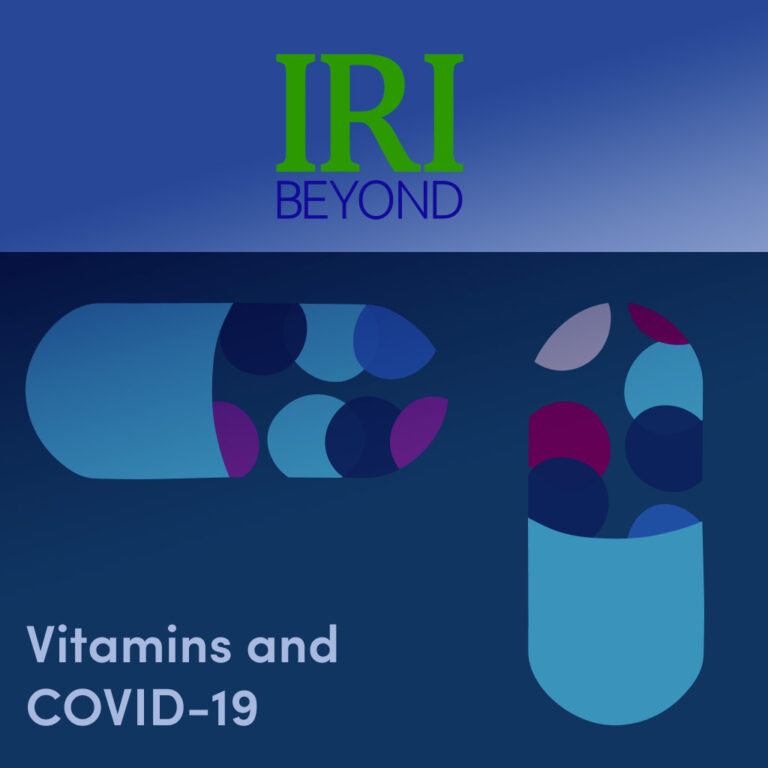The association between the differences in vitamin K status /vitamin D status /desmosine and IL-6 levels in COVID-19 patients. Vitamin K levels were defined as “low” when dp-ucMGP levels were above median, and “high” when dp-ucMGP levels were below median. Vitamin D levels were defined as “low” when there was a 25(OH)D insufficiency (concentration < 50 nmol/L) and “high” when there was a sufficient amount of vitamin D (concentration >50 nmol/L). (A) The effect of vitamin K status — derived from dp-ucMGP status — on desmosine levels in patients with high or low vitamin D levels. Desmosine levels were measured in 122 patients. (B) The effect of vitamin K status — derived from dp-ucMGP status — on IL-6 levels in patients with high or low vitamin D levels (n = 131). *Indicates significant difference between groups.
Much has been made about the beneficial effects of Vitamin D with regards to SARS-CoV-2 infection and Spike Protein disease/injury. However, we must remember that Vitamin K is necessary for Vitamin D to function properly and to achieve its benefits in bone and cardiovascular health.
Vitamins D and K are both fat-soluble vitamins and play a central role in calcium metabolism. Vitamin D promotes the production of vitamin K-dependent proteins, which require vitamin K for carboxylation in order to function properly. The purpose of this review is to summarize available evidence of the synergistic interplay between vitamins D and K on bone and cardiovascular health. Animal and human studies suggest that optimal concentrations of both vitamin D and vitamin K are beneficial for bone and cardiovascular health as supported by genetic, molecular, cellular, and human studies.
The Synergistic Interplay between Vitamins D and K for Bone and Cardiovascular Health: A Narrative Review
https://www.ncbi.nlm.nih.gov/pmc/articles/PMC5613455
Indeed, Vitamin K may be even more beneficial in treating COVID that Vitamin D.
By far most research to date has been performed on vitamin D, which is thought to dampen both innate and adaptive immune responses, potentially reducing COVID-19 severity. Vitamin D has been demonstrated to downregulate several cytokines, including IL-6 (7, 8), and, before the emergence of SARS-CoV-2, administration of vitamin D was shown to be protective against acute respiratory tract infections (9). However, studies examining the potential role of vitamin D in COVID-19 show contradictory results (10, 11). Vitamin D is mostly endogenously synthesized in the skin during exposure to sunlight but can be exogenously absorbed from food and supplements as well. Circulating 25-hydroxyvitamin D (25(OH)D) is seen as the best indicator of vitamin D status, since it reflects both intake and production.
Vitamin K was also identified as a candidate modulator of COVID-19 severity (12) based on the strong association between vitamin K insufficiency and poor clinical outcome in two independent cohorts of hospitalized COVID-19 patients (13, 14). It has been proposed that vitamin K-dependent activation of matrix Gla protein (MGP), a potent protector of soft tissues against various insults such as mineralization and degradation, is critical for dampening inflammation-induced damage to vascular and pulmonary tissues during SARS CoV-2 infection (12). However, vitamin K may also suppress IL-6 production, both indirectly through its activation of the immune inhibitory proteins growth-arrest-specific gene 6 (Gas6) (15, 16) and protein S (17, 18), or directly by inhibiting phosphorylation of IKKα/β that is required for activation of nuclear factor (NF)κB (19, 20).
And this same article discusses:
There are various mechanisms through which vitamin K may influence the inflammatory course of SARS-CoV-2 infection. Protein S and Gas6 specifically dampen monocyte and macrophage production of IL-6 through their binding to the Tyro3/Axl/Mer (TAM) family of receptor tyrosine kinases (15, 18). This binding requires vitamin K-dependent carboxylation. It has already been suggested that loss of protein S is associated with a loss of crucial immune inhibition that has detrimental effects on COVID-19 severity (18, 33). Similarly, vitamin K is thought to directly dampen NFκB signaling, one of the pathways involved in IL-6 expression, which has been implicated in macrophages (34, 35) and pulmonary epithelium in COVID-19 (36). This might result in a more specific IL-6 inhibition than achieved through administration of tocilizumab (37). Furthermore, in contrast to treatments that solely interfere with IL-6, vitamin K not only modulates inflammation but also targets other causes of SARS-CoV-2 induced pathology, including vascular and pulmonary damage as well as coagulopathy. In this study, both IL-6 and dp-ucMGP positively associate with DES, which supports the hypothesis that vitamin K deficiency relates to the unfavorable effects of IL-6.
Effects of Vitamin D and K on Interleukin-6 in COVID-19
https://www.frontiersin.org/articles/10.3389/fnut.2021.761191/full
I feel the need to highlight Vitamin K this week not only for its beneficial effects in treating COVID, but also because it may be very important in mitigating calcification caused by the Spike Protein. Please refer to my previous post discussing the mechanisms and Spike Protein induced systemic calcification.
Vascular calcification is an inflammation-mediated process in which activated transdifferentiation of VSMCs into osteoblastic cells was induced by the action of cytokines such as TNF-α and OSM secreted from macrophages infiltrated in intimal and medial tissues of arterial wall. Vitamin K may prevent vascular calcification through an anti-inflammatory mechanism as well as promotion of γ-carboxylation of MGP. The preventive role of active MGP in vascular calcification has been proven by several clinical studies demonstrating the procalcific effect of warfarin, a vitamin K antagonist in arteries. Various clinical studies have revealed that higher vitamin K intake may reduce the risk of vascular calcification and CVD and higher plasma concentrations of dp-ucMGP may predict future risk of death or CV events. High-quality prospective cohort studies and RCTs are still required to establish the role of vitamin K in CV health.
The Inhibitory Roles of Vitamin K in Progression of Vascular Calcification
https://www.ncbi.nlm.nih.gov/pmc/articles/PMC7071387/

